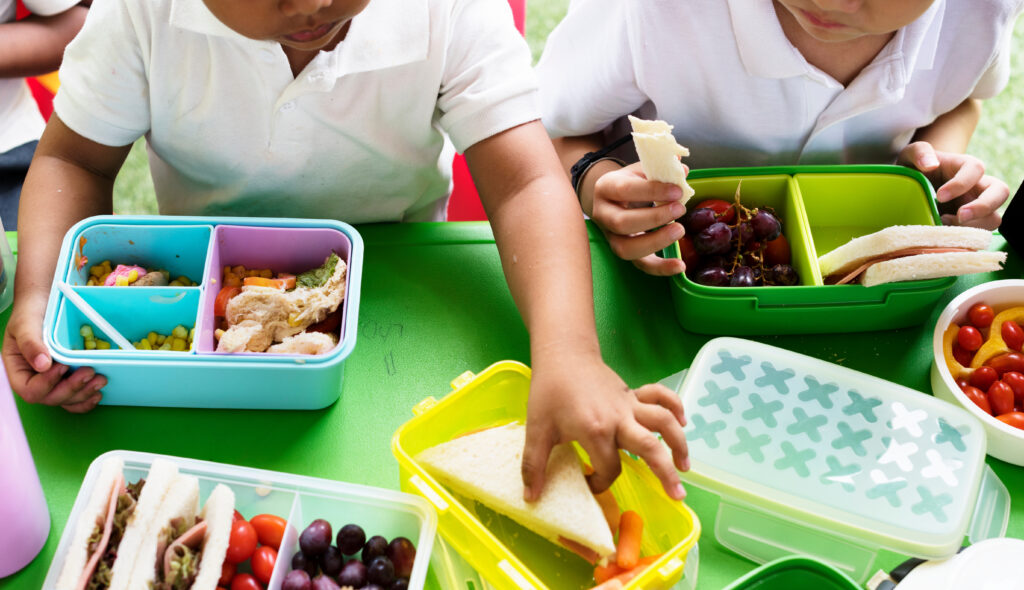Thirty-one members of Congress have urged US Agriculture Secretary Tom Vilsack to address dietary racism within the National School Lunch Program (NSLP).
They raised the issue to him in a letter. At the center of the complaint is a perceived supply chain monopoly by the US dairy sector. Items are supplied to Black, Indigenous, and People of Color (BIPOC), many of whom suffer from a degree of lactose intolerance.
The letter, sent to Secretary Vilsack in mid-October, asks that the US Department of Agriculture (USDA) provide soy milk to support the dietary needs of all children. It underscores this demand by reiterating that the cow’s milk-centric school program “is delivering detrimental impacts on BIPOC school children.”
What is dietary racism?
Dietary racism refers to a food system that prioritizes and promotes the consumption of foods that will adversely impact non-white communities. Dairy and its impact on those with lactose intolerance is of particular concern in the US.

Digestive reactions to lactose, the sugar found in dairy, often take the form of abdominal discomfort and excess gas. They can also include vomiting and diarrhea.
It is currently estimated that at least 75 percent of Black and Latinx populations are lactose intolerant. In addition, around 95 percent of Asian communities and more than 80 percent of Indigenous Americans have the condition.
Despite these figures, the NSLP operates in a way that financially penalizes schools for providing safe alternatives to cow’s milk. Signees of the letter to Secretary Vilsack call this a “textbook example of dietary racism.”
As it stands, the NSLP reimburses schools 20.5 cents for every serving of cows milk given with on-site meals. This equated to a total governmental spend of more than $2.1 billion on school milk in 2019. However, a USDA investigation revealed that schools throw away 29 percent of milk cartons unopened. This equates to $300 million in food waste every year.
US Dietary Guidelines recognize fortified soy alternatives as nutritionally equivalent to dairy. Despite this, institutions are not reimbursed for supplying them.
Protecting children’s health
All 31 signees of the letter to Secretary Vilsack are members of the Democratic political party, with Louisiana’s Troy Carter leading the charge.
“The reality is, millions of kids across America’s schools are given milk on their lunch trays that will make them feel sick, or that will immediately be discarded,” he said in a statement.

“It’s time that our school lunches reflect the reality that many of our children, including the majority of Black, Asian and Hispanic kids, are lactose intolerant. By providing a nutritionally equivalent substitute such as soy milk, we can help keep our kids healthier, full, and decrease food waste.”
Supporting the efforts of the letter is the Center for a Humane Economy. This nonprofit encourages big corporations to act ethically for widespread fiscal stability. It notes that the NSLP was founded on the principle of supplying healthy and nutritious food to children.
It claims that the program’s platform is being used to maximize opportunities for Big Dairy (the industrial dairy sector). This is regardless of how sick children can get. A number of experts have discredited national campaigns featuring slogans like “milk does a body good.”
Support for the letter
Also supporting the letter’s ambitions is Switch4Good. Led by former US Olympian Dotsie Bausch, the nonprofit aims to cut through apparently disingenuous narratives offered by Big Dairy. It also calls for a fair food system for all.
“I applaud congress for seeking to rectify what is one of the most egregious examples of racial inequity in nutritional policy,” Bausch said in a statement.
“Advocates for food justice have been asking for these simple shifts, such as a proportional reimbursement to schools for soy milk, to give children of color a fair start in school and set up a lifetime of healthy choices.”






